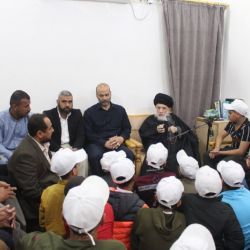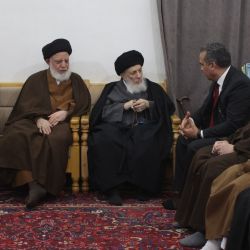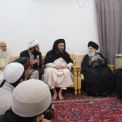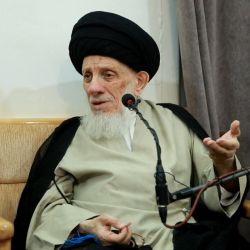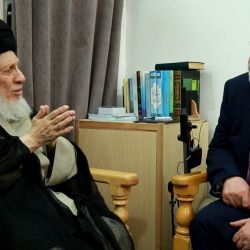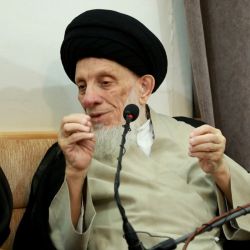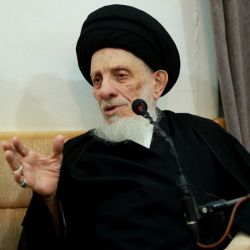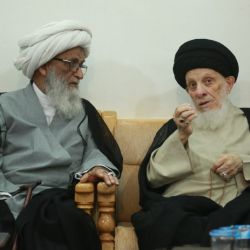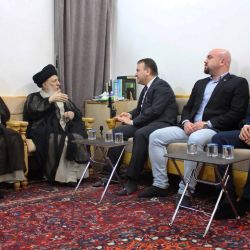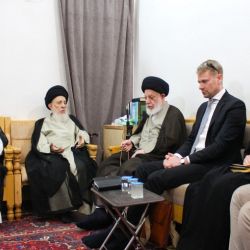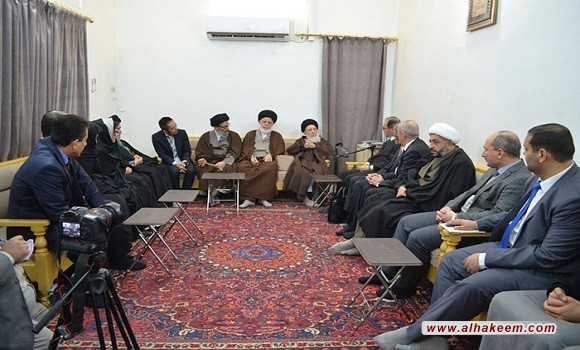
His Eminence Sayyid Al-Hakeem receives the Ambassador of Japan with a number of intellectuals and researchers from Japanese universities.
His Eminence Grand Ayatollah Sayyid al-Hakeem received a delegation of intellectuals and researchers from Japanese universities, headed by the Ambassador of Japan in Baghdad, Fumio Iwai, on Monday 24th Rabi-ul-Akhir 1438. During the meeting, his Eminence emphasized on the fact that the culture of the followers of the Ahlul-Bayt follows the teachings of the Holy Quran and the Holy Prophet (peace be upon him and his progeny). He explained that the Holy Messenger and the Ahlul-Bayt (peace be upon them) applied those teachings on themselves first, and directed their followers towards the path of these very teachings and this great culture which holds high humanitarian values.
His Eminence added that "due to this, it is noticed amongst the followers of the Ahlul-Bayt that there exists a state of communal and humanitarian coherence and connection between them, and a person who is committed to the teachings of the Ahlul-Bayt (peace be upon them) lives in a way that he is mentally content and psychologically stable and firm, a state "that may not exist in other communities.
His Eminence concluded by emphasizing on the importance of communication between different communities in order to know each other and to learn the cultures of others in a direct way, as direct discussions and meetings hold important benefits.
The Ambassador of Japan, on his part, as well as the other members of the contingent, expressed the great honor of being a part of this fruitful and beneficial meeting.

